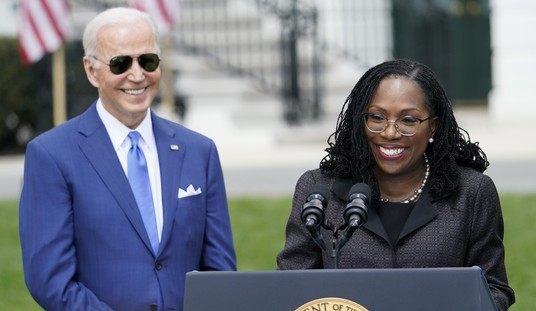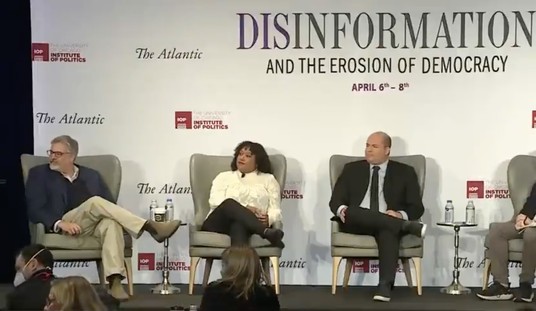
An article was published yesterday in the New York Times that is causing anguish among Democrats. The article says that the Sanders campaign, at the behest of the candidate has decided to make losing as ugly and painful as possible for Clinton.
After sounding subdued if not downbeat about the race for weeks, Mr. Sanders resumed a combative posture against Mrs. Clinton, demanding on Wednesday that she debate him before the June 7 primary in California and highlighting anew what he asserted were her weaknesses against Mr. Trump.
Mr. Sanders, his advisers said, has been buoyed by a stream of polls showing him beating Mr. Trump by larger margins than Mrs. Clinton in some battleground states, and by his belief that an upset victory in California could have a psychological impact on convention delegates who already have doubts about Mrs. Clinton.
But his newly resolute attitude is also the cumulative result of months of anger at the national Democratic Party over a debate schedule that his campaign said favored Mrs. Clinton; a fund-raising arrangement between the party and the Clinton campaign; the appointment of fierce Clinton partisans as leaders of important convention committees; and the party’s rebuke of Mr. Sanders on Tuesday for not clearly condemning a melee at the Nevada Democratic convention on Saturday.
While Mr. Sanders says he does not want Mr. Trump to win in November, his advisers and allies say he is willing to do some harm to Mrs. Clinton in the shorter term if it means he can capture a majority of the 475 pledged delegates at stake in California and arrive at the Philadelphia convention with maximum political power.
Tad Devine, a senior adviser to Mr. Sanders, said the campaign did not think its attacks would help Mr. Trump in the long run, but added that the senator’s team was “not thinking about” the possibility that they could help derail Mrs. Clinton from becoming the first woman elected president.
“The only thing that matters is what happens between now and June 14,” Mr. Devine said, referring to the final Democratic primary, in the District of Columbia. “We have to put the blinders on and focus on the best case to make in the upcoming states. If we do that, we can be in a strong position to make the best closing argument before the convention. If not, everyone will know in mid-June, and we’ll have to take a hard look at where things stand.”
The prospect of a drawn-out Democratic fight is deeply troubling to party leaders who are eager for Mrs. Clinton and House and Senate candidates to turn to attacking Mr. Trump without being diverted by Democratic strife. Mr. Sanders has won nearly 10 million votes, compared to Mrs. Clinton’s 13 million, and Democratic leaders say she needs time to begin courting the young voters, liberals and other Sanders supporters who view her as an ally of corporate and big-money interests.
But Mr. Sanders has sharpened his language of late, saying Tuesday night that the party faced a choice to remain “dependent on big-money campaign contributions and be a party with limited participation and limited energy” or “welcome into the party people who are prepared to fight for real economic and social change.”
Mr. Sanders’s street-fighting instincts have been encouraged by his like-minded campaign manager, Jeff Weaver, who has been blistering against the Clinton camp and the party establishment. On Wednesday, he took to CNN to accuse Representative Debbie Wasserman Schultz of Florida, the Democratic national chairwoman, of “throwing shade on the Sanders campaign from the very beginning.”
For the record, Sanders is absolutely correct. He has conducted a campaign against Hillary Clinton and the entire Democrat party apparatus that, unlike Reince Priebus’ RNC, hasn’t even maintained the fiction of impartiality. So far, Sanders has accrued the exact same percentage of votes cast as has Donald Trump.
When you look at Sander’s response to the DNC demand that he apologize for the fracas at the Nevada Democrat conclave last weekend — it was as close to FOAD as you can get without actually saying FOAD — and the sudden resignation of some key Sanders staffers in the context of this article you suddenly see an angry old Bolshevik more than willing to pull the pillars of the temple down.
At The New Republic, Jeet Heer points out that Hillary is constrained in her ability to call on Sanders to drop out because of her own behavior, up to and including borderline birtherism and race baiting as she lost the 2008 primary:
As she begins to pivot to the general election, Clinton might be peeved by Sanders’s stubbornness. But her past (and political savvy, perhaps) handcuffs her from calling on Sanders to quit. She used to be in his position. On May 13, 2008, she said, “This race isn’t over yet. Neither of us has the total delegates it takes to win.” The claim was a dubious one, given that Obama’s delegate lead was virtually insurmountable. But Clinton’s argument that all Democratic voters deserved to be heard was a fair one, just as Sanders’s same argument is.
The problem in 2008 was the racial tinge to Clinton’s last-ditch defense: that Obama was a doomed candidate because of his alleged inability to win over white voters. On May 8, she argued that “I have a much broader base to build a winning coalition on,” and cited an article whose findings she summarized thus: “Senator Obama’s support among working, hard-working Americans, white Americans, is weakening again, and how whites in both states who had not completed college were supporting me.” The contrast between Obama’s base of black voters with the “hard-working” white Americans supporting Clinton, made on the eve of a primary in West Virginia, carried clear racial overtones.
Obama’s former communications guy, Dan Pfeiffer, hasn’t helped Clinton out by recalling her actions in 2008:
Periodic Reminder: the 2016 Dem primary is less heated/divisive than 08, its just that Twitter gives people an outlet they didnt have in 08
— Dan Pfeiffer (@danpfeiffer) May 18, 2016
Josh Marshall, writing at TPM, sees this as a serious threat.
But there’s a part Jeet leaves out. Both sides in the 2008 struggle had profound personal and professional connections to and investment in the Democratic party. That put real limits on how far the acrimony would go. Even if you insist on seeing Clinton’s actions at the end of the 2008 primary process through the most cynical prism possible, it’s clear she was not willing to destroy her own future political relevance or her husband’s political legacy by not getting behind Obama in the general. Sanders and Jeff Weaver have no such investment on the line. Indeed, their own political background is one as dissidents whose political posture is one of resisting and opposing institutional politics. Dissident politics has a glorious history of its own. But it’s not one that leads to Kumbaya moments at national party conventions.
So even if the acrimony or darkness is comparable, indeed perhaps worse in 2008, the structural reality is a bit different.
From what I can tell, the current Sanders campaign is riven between people who are increasingly upset or bewildered by what we might call the resurgent “burn it down” turn of Sanders outlook and others who are fully immersed in the feedback loop of grievance and paranoia that sees all the political events of the last year as a series of large and small scale conspiracies to deny the rectitude and destiny of Bernie Sanders. I’ve seen many, many campaigns. People put everything into it and losing is brutal and punishing. Folks on the losing side frequently go a little nuts, sometimes a lot nuts. The 2008 denouement really was pretty crazy. But it’s not clear that this time we have any countervailing force – adulthood, institutional buy-in, future careers, over-riding pragmatism to rein things in.
All of this goes back to a point that I’ve been making for a few months. Hillary Clinton is a monumentally weak candidate. She is temperamentally unsuited to compromise or reconciliation. Sanders is a zealot inspired by a nearly messianic self-righteousness and his followers are very similar to Donald Trump’s in motivation. The more bitter the end to this primary season is for the Democrats, the greater the chance that a non-trivial number of Sanders voters will defect to Trump. And Trump knows this. Why else do you think he’s playing footsie with keeping Obamacare — though in a much more magnificent and excellent form, to be sure — and increasing the federal minimum wage?
We could be looking at the first election ever where both candidates manage to lose… and where both certainly deserve to.












Join the conversation as a VIP Member